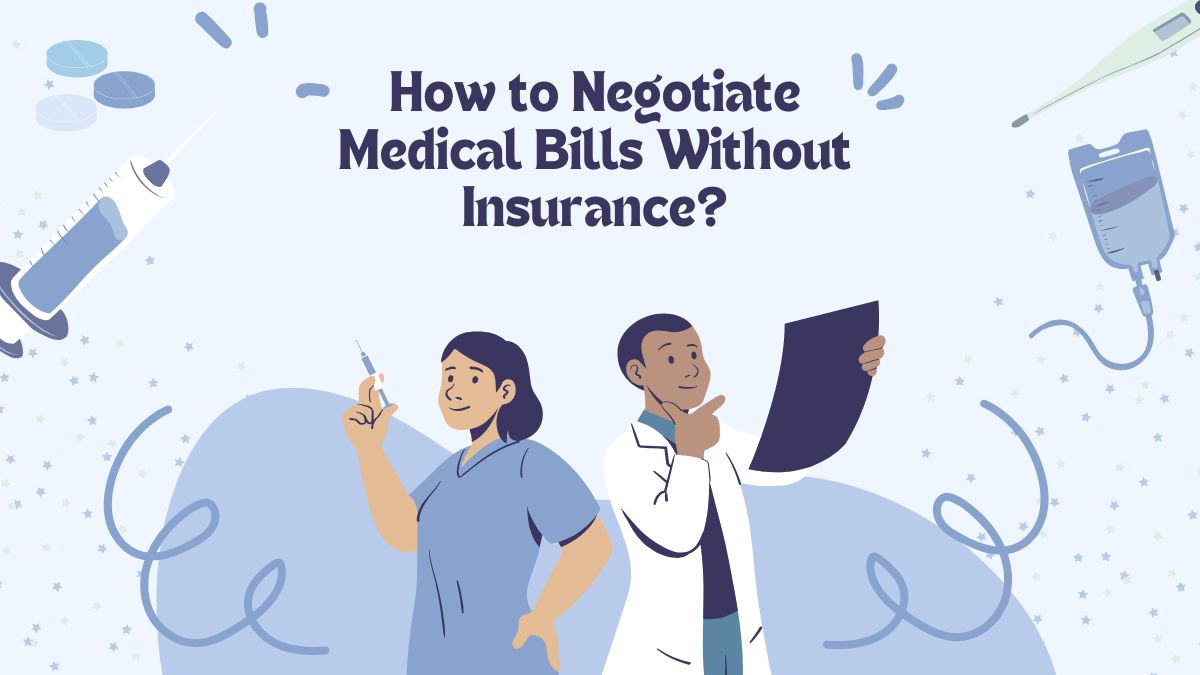Having to pay a hefty medical bill without insurance can be stressful. You’re not alone. Millions of Indians deal with this reality, but there is good news: negotiations are often possible. We’ll guide you through the steps to potentially reduce your medical bills.
Understanding the Problem: The High Cost of Uninsured Healthcare

In the absence of insurance, you are responsible for the full cost of medical services. Hospitals and clinics often charge significantly higher rates to uninsured patients. The reason for this is that insurance companies negotiate discounted rates, which you do not automatically receive.
Step 1: Get Organized and Gather Information
- Request an Itemized Bill: Don’t just pay the total amount. Ask for a detailed, itemized bill. This will list every service, test, and medication you received, along with its cost.
- Check for Errors: Carefully review the bill for any mistakes. The number of errors is higher than you might think, and they can significantly increase your bill. Look for duplicate charges, incorrect procedure codes, or services you didn’t receive.
- Gather Your Financial Information: Make sure you have your income, expenses, and any other relevant financial documents at hand. When discussing payment options, this will be crucial.
- Document Everything: Keep a record of all your communication with the hospital or clinic, including dates, times, and the names of people you spoke with.
Step 2: Contact the Billing Department
- Be Polite and Professional: Remember that the billing staff are people too. A calm and respectful approach is more likely to yield positive results.
- Explain Your Situation: Clearly explain that you are uninsured and facing financial hardship. Be honest about your ability to pay.
- Ask for a Discount: Inquire about discounts for uninsured patients. Many hospitals offer significant discounts if you pay in cash or within a specific timeframe.
- Ask for a Payment Plan: If you can’t pay the full amount immediately, ask about setting up a payment plan. This allows you to pay the bill in smaller, more manageable installments.
- Ask about Financial Assistance Programs: Many hospitals and clinics have financial assistance programs for low-income patients. Ask if you qualify for any of these programs. These programs often include large discounts or even total bill forgiveness.
Step 3: Negotiate Specific Charges
- Research Average Costs: Use online resources like FAIR Health Consumer or Healthcare Bluebook to research the average cost of the services you received in your area. This will give you a benchmark for negotiation.
- Challenge High Charges: If you find that certain charges are significantly higher than the average, politely challenge them. Provide evidence of the average costs you found.
- Negotiate Medication Costs: Medication costs can be a significant portion of your bill. Ask if there are generic alternatives or if the hospital can provide samples.
- Negotiate Lab and Imaging Costs: Lab tests and imaging procedures can also be expensive. Ask if there are less expensive options or if you can have them performed at an independent lab or imaging center.
- Ask for a “Self-Pay” Discount: Many hospitals have a “self-pay” discount that is applied when a patient pays without the use of insurance.
Step 4: Explore Alternative Payment Options
- Medical Credit Cards: Some companies offer medical credit cards that can be used to pay medical bills. Keep an eye out for high interest rates and fees, however.
- Personal Loans: A personal loan from a bank or credit union might be an option, but again, be aware of interest rates.
- Crowdfunding: Platforms like GoFundMe can be used to raise funds from friends, family, and the community.
- Charitable Organizations: Some charitable organizations provide financial assistance for medical bills. Research organizations that focus on your specific medical condition.
- Negotiate with Collection Agencies: If your bill has been sent to a collection agency, you can still negotiate. Collection agencies often buy debt for a fraction of its original value, so they may be willing to accept a lower payment. Be sure to get any agreement in writing.
Step 5: Get Everything in Writing
- Confirm all agreements in writing. Any payment plan, discount, or settlement should be documented in writing and signed by both you and a representative of the hospital or clinic.
- Keep copies of all documents. This includes the itemized bill, payment agreements, and any other correspondence.
A few Points to Consider
- Don’t Ignore the Bill: Ignoring the bill will only make the situation worse. It can lead to collection actions and damage your credit score.
- Be Persistent: Negotiation can take time and effort. Don’t give up easily.
- Seek Help: Consider hiring a patient advocate or a financial counselor if you are feeling overwhelmed. They can provide guidance and support throughout the negotiation process.
- Preventative Care: Taking care of current bills is important, but it’s also important to focus on preventative care. It is possible to get a yearly checkup at some clinics without insurance. Preventative care will help avoid larger bills in the future.
- Look into community clinics: Community clinics often offer care on a sliding scale, based on your income.
- Consider Telehealth: Telehealth can be a less expensive option for some care.
Also Read:
- 5 Questions to Ask Before Taking a Personal Loan
- Emergency Fund for Gig Economy Workers: Don’t Get Caught Off Guard – Plan Ahead!
Conclusion
Negotiating medical bills without insurance can be challenging, but it’s not impossible. If you are organized, proactive, and persistent, you may be able to reduce your financial burden. Keep everything documented, be polite, and be professional. Don’t be afraid to ask for help and explore all available options. Your financial health is important, and you have the right to advocate for yourself.

